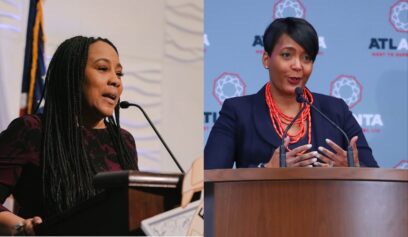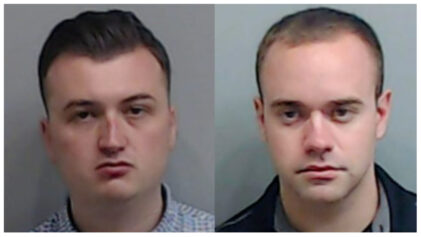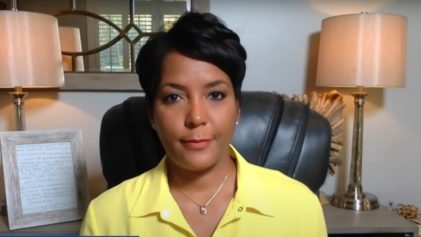Atlanta is coming off one of its bloodiest years in nearly a quarter century.
Violent crime soared as a fiery summer of unrest roiled nationwide. Amid those major protests, the Atlanta Police Department grappled with a number of high-profile brutality cases. That included the fatal shooting of Rayshard Brooks, which led to the police chief’s resignation and charges filed against both officers involved.
But the recent tragedy of a 7-year-old girl’s death seemed to bring the bloodshed to the forefront. Now Atlanta city leaders are searching for answers to draw down the violence.
“Never before have we faced a year like 2020, coming together with the social justice movement in the midst of a pandemic while also navigating other challenges of our national leadership,” Atlanta Mayor Keisha Lance Bottoms said during a press conference last month. “People are struggling to make ends meet, people are sick. They’re watching their family members die.
“People are depressed, they are anxious, and they are angry, and the weight of all of these issues is pouring out into our streets,” she said.
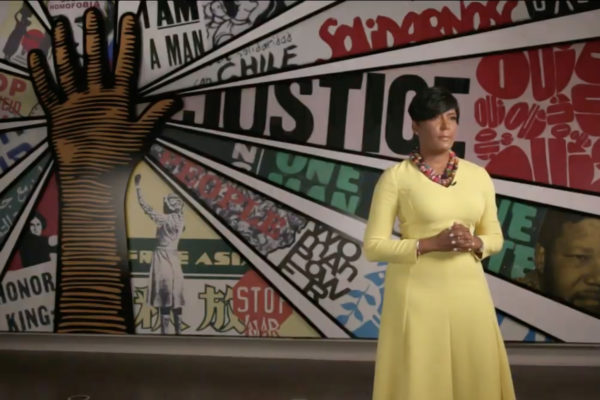
The city ended the year with 157 homicides, its highest body count since 1996, when A-Town police investigated 196 murders, according to APD spokesman Steve Avery.
Violence surged after the mid-year point of 2020, according to week-to-week crime stats reported on the police department’s website. By the end of week 26, which ended June 27, the city had recorded 50 murders and 971 aggravated assaults. Those numbers rose 114 percent and 34.7 percent, respectively, over the final six months of the year.
“I think this is a direct result of investing in the same broken public safety and policing strategy that the city council and this mayor and other mayors have supported over the last 25 years, which is to double down on police,” Atlanta activist Devin Barrington-Ward said to Atlanta Black Star recently. “And what we’ve seen is that more police does not necessarily mean more public safety, because police inherently have a function to respond to incidents after the case. But that response doesn’t necessarily denote a change in behavior in community.”
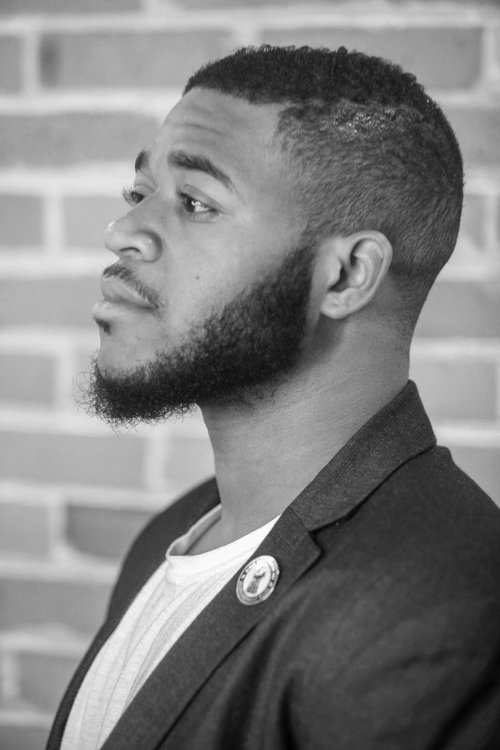
Seasonal fluctuations may be one reason to explain some of the spike in crime. A U.S. Department of Justice study showed aggravated assaults tend to increase during the summer months.
Yet the violence didn’t peak until the final month of 2020. Atlanta saw 22 homicides after Nov. 29. There was a 25 percent overall increase in homicides, rapes and aggravated assaults over the last four weeks of the year compared to 2019, APD numbers show.
It was underscored by a mass exodus from the police force over the summer. Sixty-three officers resigned or retired from the department in July and August, according to The Atlanta Journal-Constitution. That punctuated a rate of departures nearly twice that of 2019. Internal documents revealed many of the officers walked out in protest, feeling unappreciated by APD brass and city leaders, the newspaper reported.
By year’s end, Atlanta had lost a total of 201 officers, amounting to 54 more departures than were seen in 2019, according to numbers provided by Avery. APD hired 115 new recruits in 2020.
Citing the fact that the police department accounts for almost a third of the city’s general fund budget, Barrington-Ward said one solution to deciphering the crime riddle is divesting some of those funds to community programs that provide more resources and help erase economic disparities.
“It is not a coincidence that the city of Atlanta has the highest income inequality in the country, and now we are seeing some of the highest rates of crime in our history,” he said. “Those two things are interconnected, and the City Council and the mayor’s responsible for creating these economic divisions from Bankhead to Buckhead, from south of I-20 to north of I-20.”
Public sentiment boiled over after Kennedy Maxie, a 7-year-old Black girl, was struck by a stray bullet Dec. 21 while Christmas shopping with her family near Phipps Plaza in Atlanta’s upscale Buckhead commercial district. A gunshot rang out as Maxie was riding in a car with her mother and aunt, and she was struck in the back of the head, authorities say. APD homicide detective Lt. Pete Malecki said the vehicle in which Maxie was riding was not the intended target. The shooting was triggered by an argument between several men that escalated into gunplay in one of the mall’s parking lots.
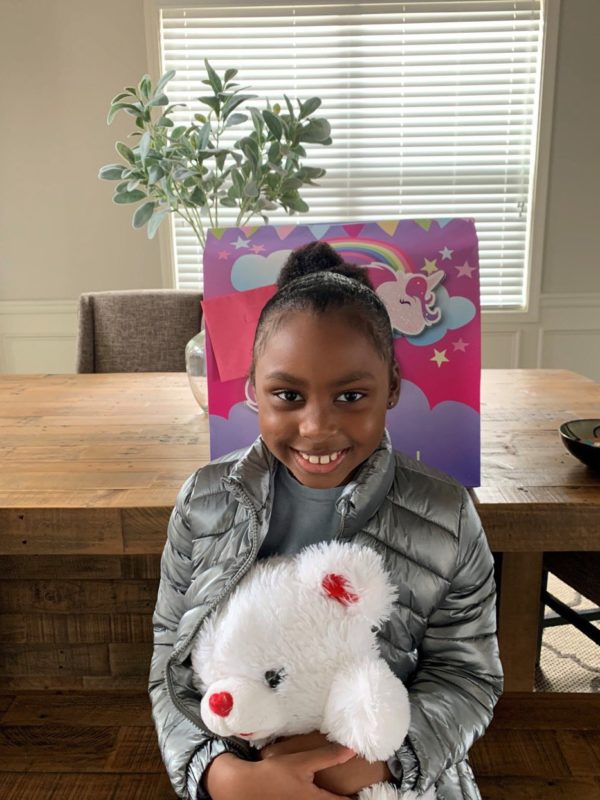
“I am not pleased at the activity that we are seeing,” APD interim chief Rodney Bryant said as he spoke to reporters during a Dec. 22 news conference. “I have deployed a number of resources to continue to address it.”
Maxie remained in critical condition for five days before she died Dec. 26. Atlanta police identified 24-year-old Daquan Reed as the gunman who fired the fatal shot. U.S. Marshals arrested Reed in Hampton, Virginia, Atlanta Police Department officials announced Wednesday, Jan. 6. He was charged with murder, possession of a firearm by a convicted felon, possession of a firearm during the commission of a crime, and reckless conduct.
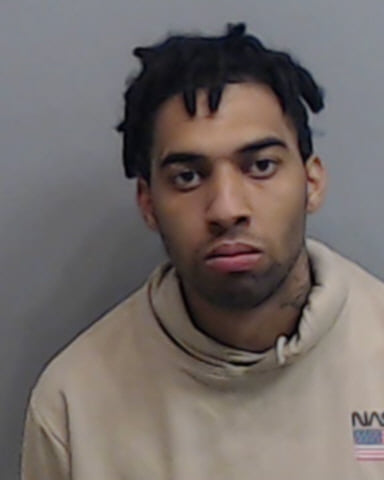
Councilman Howard Shook released a statement the day after Maxie’s shooting, describing it as the “latest and most painful example of the utter lawlessness that defines what it means to live in Atlanta.” He implied a lack of leadership was to blame for the crescendo of violence and tailored a message for Atlanta Mayor Keisha Lance Bottoms’ administration:
“I don’t want to hear the word ‘uptick.’ Stop minimizing our concerns by telling us that ‘crime is up everywhere,'” Shook wrote. “Spare us from the lie that the steady outflow of our officers isn’t as bad as it is. And please, not another throw-away press conference utterly devoid of game-changing action steps.
“It was appalling to me that these council members were willing to take the mayor to task and were willing to cite leadership three times in a press release as the direction that we need to be moving forward. And it didn’t dawn on anyone to say well wait a second, you’re a part of the leadership structure of the city of Atlanta as well,” said Barrington-Ward, who founded a social justice organization dubbed the Black Futurists Group.
The Atlanta Police Department declined to comment this week and City Hall officials did not respond to phone calls and emailed interview requests for Lance Bottoms and city council members.
Atlanta was not alone in 2020. Chicago, New York, Los Angeles, New Orleans and several other cities across the U.S. saw drastic upticks in homicides over the previous year. It’s part of a national trend that some experts contend is the result of people sheltering in place from coronavirus, according to NPR.
Bryant cited the national increase in gun violence during his Dec. 22 press briefing. He said he’d been in discussions with police chiefs throughout the country to brainstorm ways to combat the trend.
“Part of it is the proliferation of weapons that we are seeing on the streets,” the chief said. “It’s just, this is unique to what we have had in the past.”
During a Dec. 28 press conference, Lance Bottoms said too many Atlanta children have fallen prey to the gun violence as she relayed conversations she’s had with some of the young homicide victims’ families in the wake of their deaths. She cited the death of Secoriea Turner, an 8-year-old girl shot to death during the Fourth of July weekend when the vehicle she was riding in encountered a makeshift barricade set up by individuals who were manning a “no-police zone” set up near the burned-out Wendy’s restaurant where Brooks was killed.
The mayor said she took them personally.
“This is hard, this is another child in our city,” the mayor told reporters. “Not the first child, but another child. These are children. And it’s hard and it hurts and it’s unacceptable.”
Lance Bottoms said she’s been in contact with President-elect Joe Biden and implored him to address 2020’s mental and behavioral health impact on a national level.
The mayor went on to list a number of initiatives the city has implemented in hopes of curbing the violent crime wave. That included partnerships with the FBI and specialized task forces that target violent offenders as well as programs to improve morale in the police ranks.
But Lance Bottoms seemed to concede that city leaders don’t have all the answers and enlisted help from the community.
“We are working to address the systemic issues that are leading us to this point,” she said. “It’s not going to be an easy fix. But if it’s something that we can do differently, if you know what it is let us know. And I promise you if it will make a difference and it will stop us from having to be here again, we’ll do it.”
